PDFs to Read or Download
PDFs to Read or Download
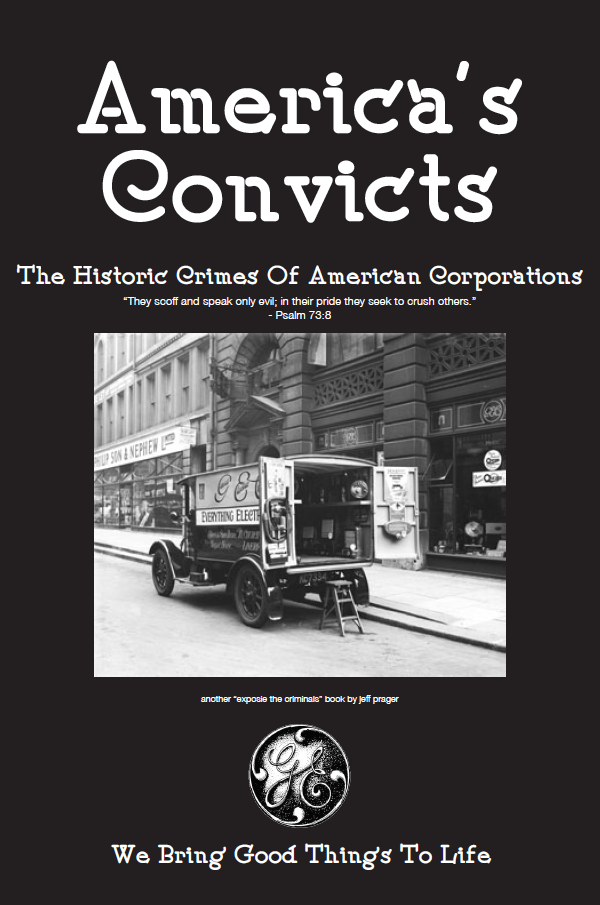
America’s Convicts: The Historic Crimes of American Corporations
compiled by Jeff Prager
Psychopaths exhibit traits such as superficial charm, an exaggerated sense of self-worth, glibness, lying, lack of remorse and manipulation of others. People that fall into this category include serial killers and politicians. Psychopaths are psychologically capable of acting free of any concern for social, moral or legal consequences with absolutely no remorse. America’s Convicts is a survey of the crimes committed by American corporations that clearly identify them as psychopathic entities.
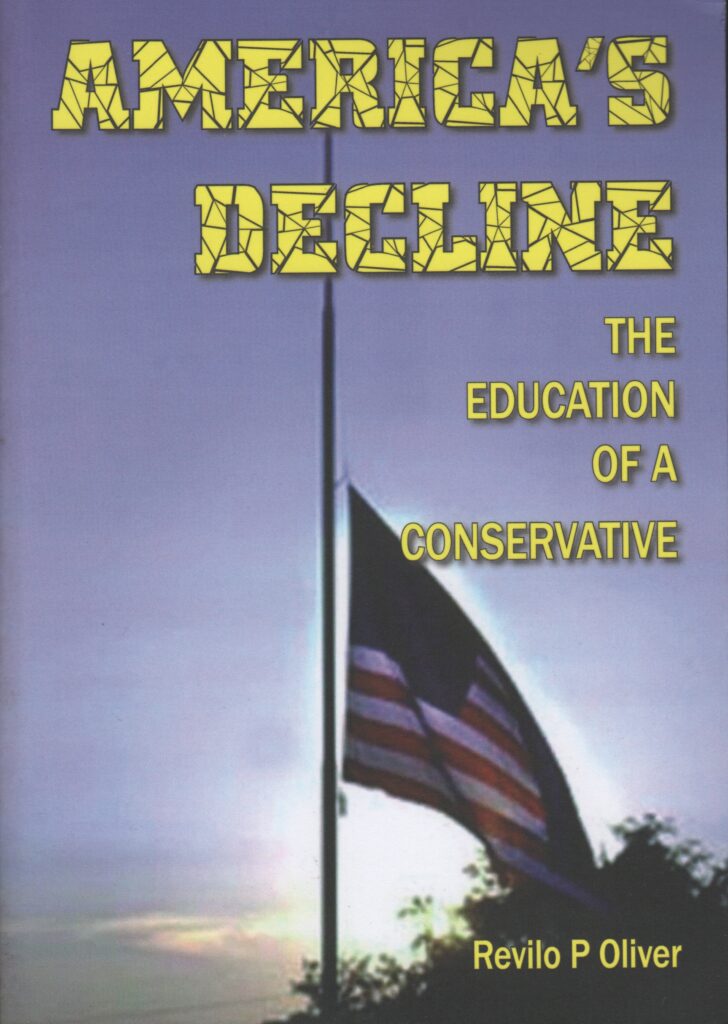
America’s Decline: The Education of a Conservative
by Revilo P. Oliver (2006)
Originally a conservative, Professor Revilo Oliver became an intellectual leader of racialists with a trenchant pen and large following. This collection of popular essays – primarily from 1955-1966, when the postwar struggle for America’s soul was at its highest – shows that the conservative cause was inherently not only a lost cause but an unworthy one.
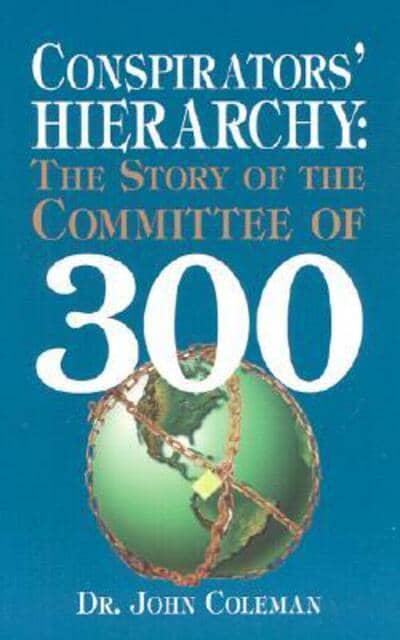
Conspirators’ Hierarchy: The Story of the Committee of 300
by Dr. John Coleman (1992)
Can you imagine an all-powerful group, that knows no national boundaries, is above the laws of all countries, controls every aspect of politics, religion, commerce and industry, banking, insurance, mining, the drug trade, the petroleum industry, and is answerable to no one but its members? If you are puzzled and perplexed as to why things are occurring that we as a nation don’t like yet seem powerless to prevent and why our former social and moral values have been turned aside and seemingly buried, this book will clearly establish that these conditions have been deliberately created to bring us to our knees.
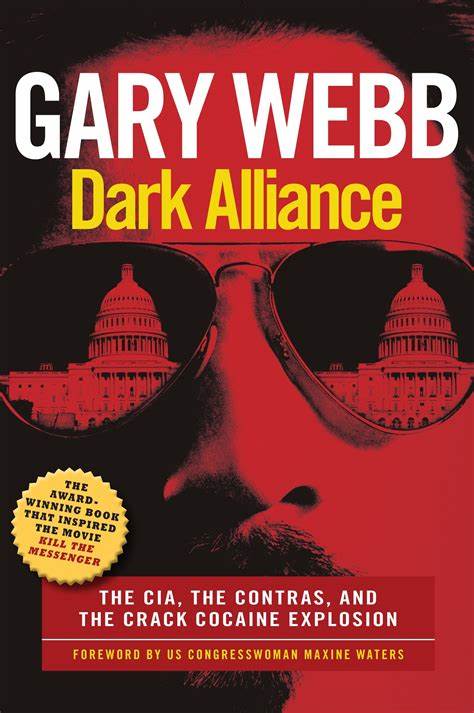
by Gary Webb (1998)
In August 1996, journalist Gary Webb stunned the world with a series of articles in the San Jose Mercury News reporting the results of his year-long investigation into the roots of the crack cocaine epidemic in America, specifically in Los Angeles. The series, titled “Dark Alliance,” revealed that for the better part of a decade, a Bay Area drug ring sold tons of cocaine to Los Angeles street gangs and funneled millions in drug profits to the CIA-backed Nicaraguan Contras. Putting the series into book form and drawing from then newly declassified documents, undercover DEA audio and videotapes that had never been publicly released, federal court testimony, and interviews, Webb demonstrates how our government knowingly allowed massive amounts of drugs and money to change hands at the expense of our communities.
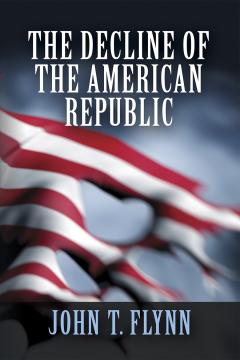
The Decline of the American Republic
by John T. Flynn (1955)
In 1955, John T. Flynn saw what few others journalist did: the welfare-warfare state conspired to bring down American liberty. The New Deal, combined with World War Two, had fastened leviathan control over a country born in liberty. This early analysis of the causes of the Great Depression and the failure of the New Deal also notes a point later demonstrated in detail by Robert Higgs: the economic boom of WW2 was false in every way, an artifice created by misleading government data and inflationary finance. Here we see the best of some of the last writings of the inter-war “Old Right,” a man whose opinions were deemed too libertarian for the likes of National Review.
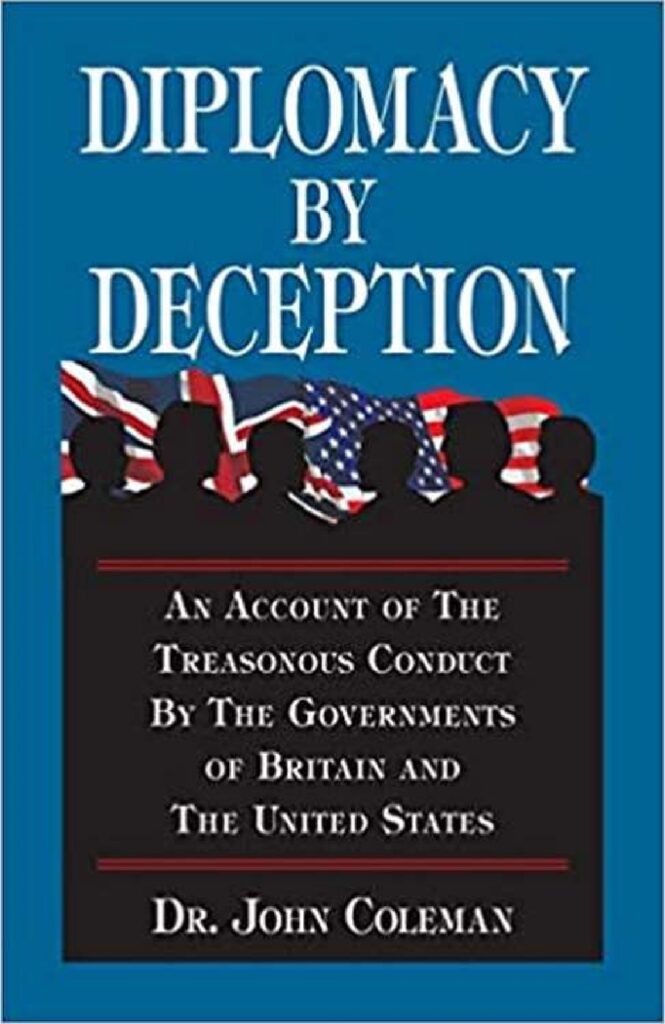
by Dr. John Coleman (1993)
As a companion book to Conspirators’ Hierarchy, this book will leave little doubt that the British and United States governments are the most corrupt in the world and that without their full cooperation in carrying out the designs of the Committee of 300, this supranatural body would not be able to go forward with its plan for a One World Government, to which former President Bush, one of its more able servants, referred to as the “New World Order.”
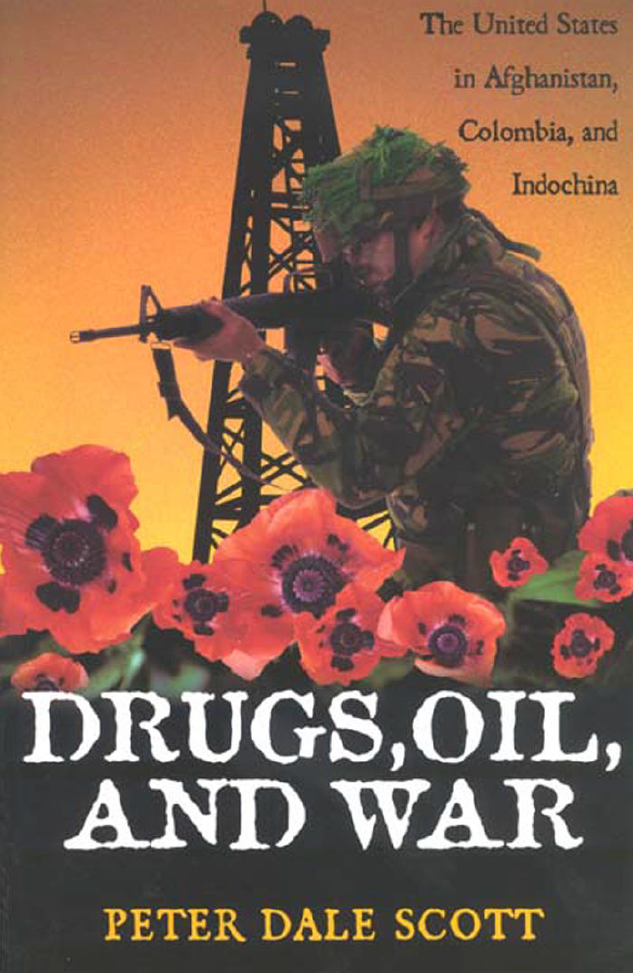
Drugs, Oil, and War: The United States in Afghanistan, Columbia, and Indochina
by Peter Dale Scott (2003)
A brilliantly researched tour de force that illuminates the underlying forces that drive U.S. global policy from Vietnam to Colombia and most recently to Afghanistan and Iraq. The author brings to light the intertwined patterns of drugs, oil politics, and intelligence networks that have been so central to the larger workings of U.S. intervention and escalation in Third World countries through alliances with drug-trafficking proxies.
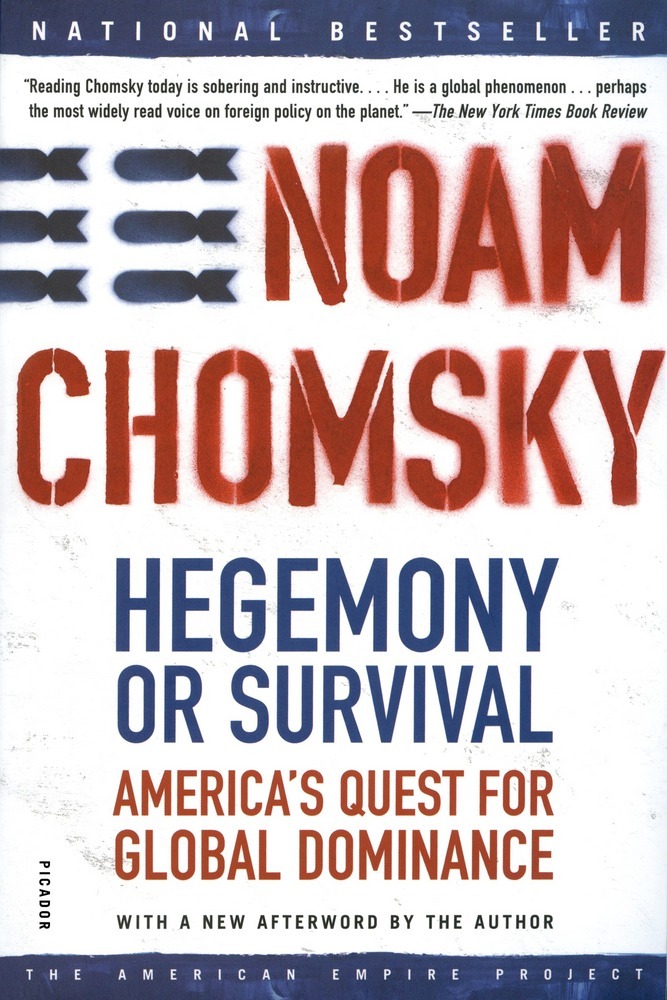
Hegemony or Survival: America’s Quest for Global Dominance
by Noam Chomsky (2004)
Demonstrates how, for more than half a century the United States has been pursuing a grand imperial strategy with the aim of staking out the globe. With the striking logic that is his trademark, Chomsky tracks the U.S. government’s aggressive pursuit of “full spectrum dominance” and vividly lays out how the most recent manifestations of the politics of global control-from unilateralism to the dismantling of international agreements to state terrorism-cohere in a drive for hegemony that ultimately threatens our existence.
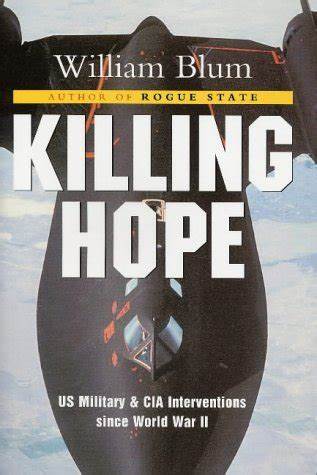
Killing Hope: U.S. Military & CIA Interventions since World War II
by William Blum (2003)
Is the United States a force for democracy? From China in the 1940s to Guatemala today, William Blum presents a comprehensive study of American covert and overt interference, by one means or another, in the internal affairs of other countries. Each chapter of the book covers a year in which the author takes one particular country case and tells the story – and each case throws light on particular US tactics of intervention.
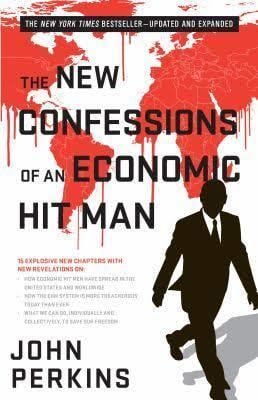
The New Confessions of an Economic Hitman
by John Perkins (2016)
Economic hit men are the shock troops of what Perkins calls the corporatocracy, a vast network of corporations, banks, colluding governments, and the rich and powerful people tied to them. In this book, Perkins shares new details about the ways he and others cheated countries around the globe out of trillions of dollars. Then he reveals how the deadly EHM cancer he helped create has spread far more widely and deeply than ever in the US and everywhere else—to become the dominant system of business, government, and society today. Finally, he gives an insider view of what we each can do to change it.
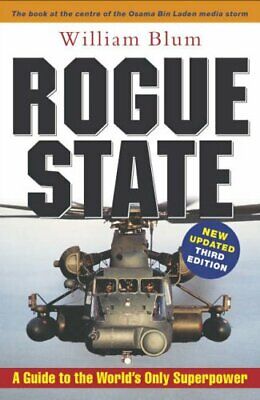
Rogue State: A Guide to the World’s Only Superpower
by William Blum (2000)
Critics will call this a one-sided book. But it is an invaluable corrective to the establishment portrait of America as ‘the world’s greatest force for peace.’ Even confirmed opponents of U.S. interventionism can find much in this important book that will both educate and shock them.
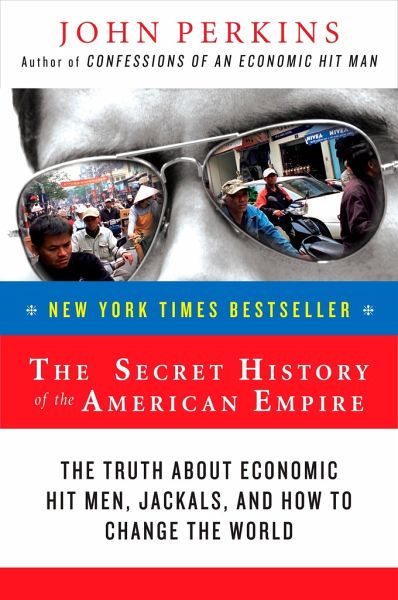
The Secret History of the American Empire
by John Perkins (2007)
From the author of the phenomenal New York Times bestseller, Confessions of an Economic Hit Man, comes an exposé of international corruption, and an inspired plan to turn the tide for future generations. From the U.S. military in Iraq to infrastructure development in Indonesia, from Peace Corps volunteers in Africa to jackals in Venezuela, Perkins exposes a conspiracy of corruption that has fueled instability and anti-Americanism around the globe, with consequences reflected in our daily headlines. Having raised the alarm, Perkins passionately addresses how Americans can work to create a more peaceful and stable world for future generations.
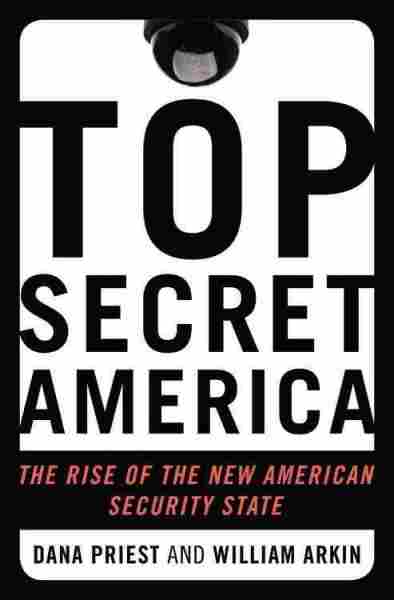
Top Secret America: The Rise of the New American Security State
by Dana Priest and William Arkin (2011)
In Top Secret America, award-winning reporters Dana Priest and William Arkin reveal that the top-secret world that the government created in response to the 9/11 terrorist attacks has become so enormous, so unwieldy, and so secretive that no one knows how much money it costs, how many people it employs or exactly how many agencies duplicate work being done elsewhere. The result is that the system put in place to keep the United States safe may be putting us in greater danger.